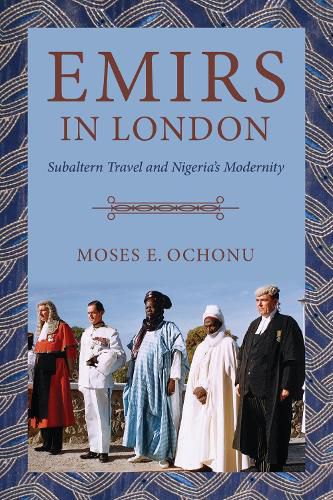Readings Newsletter
Become a Readings Member to make your shopping experience even easier.
Sign in or sign up for free!
You’re not far away from qualifying for FREE standard shipping within Australia
You’ve qualified for FREE standard shipping within Australia
The cart is loading…






Emirs in London recounts how Northern Nigerian Muslim aristocrats who traveled to Britain between 1920 and Nigerian independence in 1960 relayed that experience to the Northern Nigerian people.
Moses E. Ochonu shows how rather than simply serving as puppets and mouthpieces of the British Empire, these aristocrats leveraged their travel to the heart of the empire to reinforce their positions as imperial cultural brokers, and to translate and domesticate imperial modernity in a predominantly Muslim society.
Emirs in London explores how, through their experiences visiting the heart of the British Empire, Northern Nigerian aristocrats were enabled to define themselves within the framework of the empire. In doing so, the book reveals a unique colonial sensibility that complements rather than contradicts the traditional perspectives of less privileged Africans toward colonialism.
$9.00 standard shipping within Australia
FREE standard shipping within Australia for orders over $100.00
Express & International shipping calculated at checkout
Emirs in London recounts how Northern Nigerian Muslim aristocrats who traveled to Britain between 1920 and Nigerian independence in 1960 relayed that experience to the Northern Nigerian people.
Moses E. Ochonu shows how rather than simply serving as puppets and mouthpieces of the British Empire, these aristocrats leveraged their travel to the heart of the empire to reinforce their positions as imperial cultural brokers, and to translate and domesticate imperial modernity in a predominantly Muslim society.
Emirs in London explores how, through their experiences visiting the heart of the British Empire, Northern Nigerian aristocrats were enabled to define themselves within the framework of the empire. In doing so, the book reveals a unique colonial sensibility that complements rather than contradicts the traditional perspectives of less privileged Africans toward colonialism.